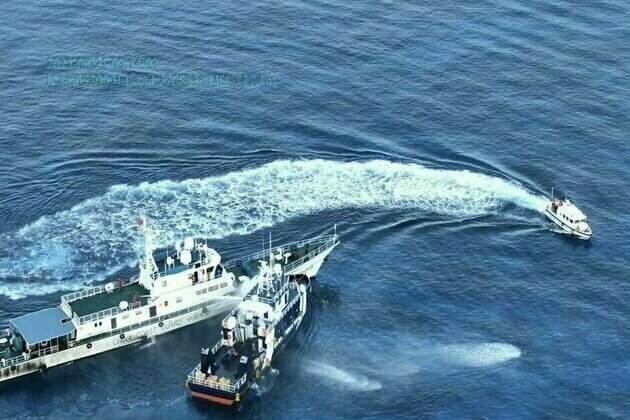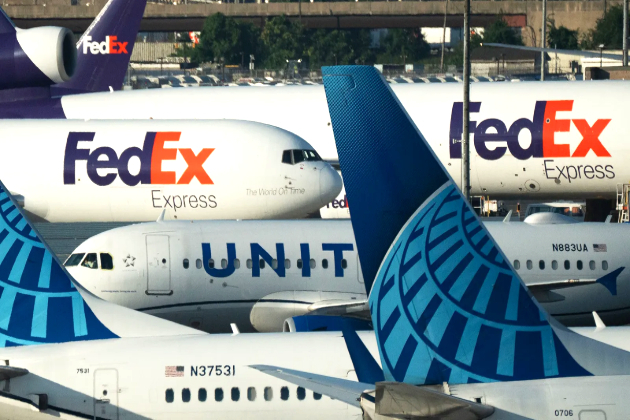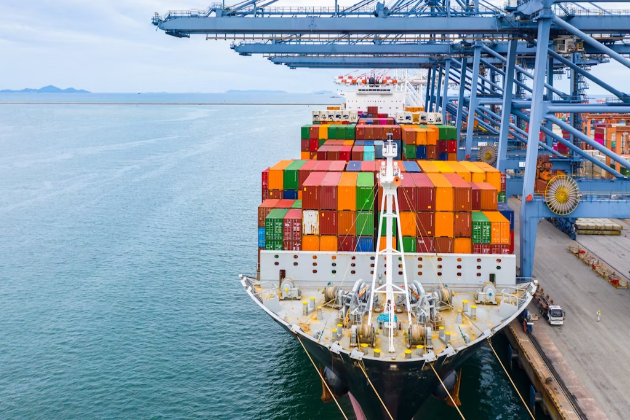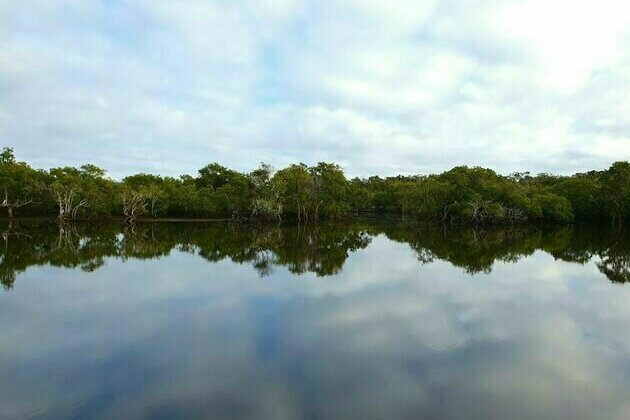Australia must not become complacent to China's aggression in the South China Sea
The Conversation
28 May 2025, 03:03 GMT+10

Last week, Chinese coast guard vessels rammed and shot water cannon at Philippine ships in the South China Sea. The incident was well within the Philippines' exclusive economic zone and was completely unprovoked.
It is the latest example of a sustained pattern of Chinese maritime coercion that has intensified over the past three years. Despite the growing frequency and sheer aggression of these tactics, international attention and official rebukes have noticeably waned in the past 12 months.
For Australia, a nation whose prosperity and security relies on maritime trade, there can be no room for complacency or desensitisation. China's maritime aggression puts Australia at risk.
Australia's lifeblood flows through the oceans. Roughly 99% of our trade by volume moves by sea. And two-thirds of Australia's maritime trade travels through the South China Sea.
In a crisis or conflict, Australia would rely on these maritime supply chains to continue delivering fuel, food, fertiliser, ammunition and other critical supplies to sustain our economy and defence forces.
Any disruption to Australia's seaborne supplies - whether by state-sanctioned harassment or outright force - threatens our national resilience at a fundamental level.
Given this, Australia's economy benefits significantly from the rules set forth in the United Nations Convention on the Law of the Sea, or UNCLOS. Australia should be deeply concerned by images of Chinese coast guard vessels ramming and firing water cannon at Philippine fisheries vessels.
China's coast guard and maritime militia have weaponised "grey zone" tactics such as these. Such actions are aimed at intimidation and coercion. They purposely fall short of actual conflict, which would trigger the collective defence guarantee between the Philippines and United States, or other strong international action.
Each collision, each burst of water cannon, reinforces a new normal: that Beijing can coerce its neighbours in peacetime without bearing a strategic cost.
The lack of response from the international community plays into this.
International reporting of these incidents has declined compared to early last year. The once-robust chorus of diplomatic protests also appears more muted.
The Australian ambassador to the Philippines expressed deep concerns about last week's incident on social media, but there was no ministerial statement or response from Australia's maritime agencies or Department of Defence.
When a Chinese fighter pilot released flares near an Australian maritime patrol aircraft over the South China Sea in February, the defence department called the action "unsafe and unprofessional". Formal complaints were lodged, but this was the end of it.
While we must carefully manage our relationship with China as an important trading partner, the continuation of these incidents requires a stronger rebuke.
Australia cannot allow a drift towards quiet acquiescence of these actions by our political leaders or the public. If coercive actions go unanswered, China will grow ever more confident that it can rewrite the norms of conduct at sea.
Over time, a contested maritime environment would inflict real costs on Australian exporters, our digital connectivity and the ability of our Navy to operate freely and safely in regional waters.
First, we should step up our diplomatic efforts to spotlight every act of aggression in the South China Sea and the broader Indo-Pacific region. This could mean supporting the Philippines in a joint ministerial statement or other collective diplomatic condemnations.
Second, Australia must continue to deepen practical cooperation with regional partners. This includes joint naval training exercises, information-sharing arrangements and coordinated patrols with partners such as the Philippines.
This will send a clear signal: we stand shoulder to shoulder with those who champion freedom of navigation and respect for exclusive economic zones.
Third, our strategic communications must be unambiguous. At home, Australians should understand that maritime security underpins our everyday prosperity, from the iPhones in our hands to the fuel in our cars and our internet banking.
Lastly, Australia must back rhetoric with resources. We must accelerate the strengthening of our maritime and naval capabilities.
Australia's plans for new submarines and surface combatants will see delivery in the 2030s and 2040s. Timeframes of this nature do not meet our present strategic reality.
Even with these new ships and submarines, glaring gaps remain and must be urgently closed. This includes acquiring mine-warfare vessels and establishing a coast guard, to name but a few. These efforts require more resourcing through increased defence spending and a genuine commitment to structural reform.
History teaches that once coercion goes unchecked, it tends to escalate. The incident last week is not an isolated provocation, but part of a continued deterioration of security in the waters around us.
Australia has both the right and the responsibility to challenge the normalisation of this kind of maritime aggression. We can push back by calling out each incident, continuing to deepen our regional partnerships, accelerating the development of our naval capabilities, and reinforcing international maritime law.
Our future prosperity, and the security of generations to come, depends on it.
 Share
Share
 Tweet
Tweet
 Share
Share
 Flip
Flip
 Email
Email
Watch latest videos
Subscribe and Follow
Get a daily dose of Australian Herald news through our daily email, its complimentary and keeps you fully up to date with world and business news as well.
News RELEASES
Publish news of your business, community or sports group, personnel appointments, major event and more by submitting a news release to Australian Herald.
More InformationInternational
SectionCanadians turn out in thousands to pay tribute to Israel
TORONTO, Canada - Tens of thousands of people from across Canada have marched in support of Israel in a massive turnout in Toronto....
Foreign students at Harvard bear the brunt of White House ban
BOSTON, Massachusetts: U.S. President Donald Trump's administration has taken away Harvard University's right to enroll international...
God responsible for his presidency, claims Trump
WASHINGTON, DC - U.S. President Donald Trump on Monday said he believed God was behind his election loss in 2020, even though he has...
Passenger traffic plummets at Newark Airport amid travel disruptions
NEW YORK CITY, New York: Passenger numbers at Newark Liberty International Airport in New Jersey have dropped sharply, according to...
EU probes Visa, Mastercard fees amid antitrust scrutiny
BRUSSELS, Belgium: European Union antitrust regulators are examining fees imposed by payment giants Visa and Mastercard, Bloomberg...
US Army to list only birth sex in transgender soldiers' records
WASHINGTON, D.C.: The U.S. Army plans to change the records of transgender soldiers to list only their sex at birth, according to a...
Sydney
SectionRemembering kids that have vanished in Australia over many years
Leela found joy in dancing. Megan loved the freedom of ice skating. Ronya was always singing along to pop songs. Cherie's favourite...
Aussie firms upbeat on China outlook despite trade tensions
SYDNEY, Australia: Australian businesses are feeling optimistic about their prospects in China despite escalating global trade tensions,...
Police seize Sydney pharmacist's assets as part of fraud probe
SYDNEY, Australia - A pharmacist has been charged after allegedly defrauding the Pharmaceutical Benefits Scheme (PBS) of more than...
Australia must not become complacent to China's aggression in the South China Sea
Last week, Chinese coast guard vessels rammed and shot water cannon at Philippine ships in the South China Sea. The incident was well...
Australia could tax Google, Facebook and other tech giants with a digital services tax - but don't hold your breath
Tech giants like Google, Facebook and Netflix make billions of dollars from Australian users every year. But most of those profits...
From surprise platypus to wandering cane toads, here's what we found hiding in NSW estuaries
Rivers up and down the north coast of New South Wales have been hammered again, just three years after devastating floods hit the Northern...












